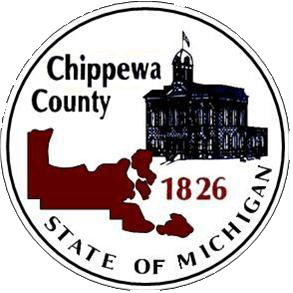

Chippewa
County,
Michigan
Probate Court - Information for New Conservator of Minor
A conservator owes a fiduciary duty to the minor, a duty of the highest trust. The conservator muse use care in handling property and be prudent in making investments. You must account to the court for all money and property received for the minor.
It is the responsibility of a conservator to preserve and protect the funds until the minor reaches the age of 18.
General Duties:
A parent acting as a conservaotr for a minor child may not use conservatorship funds to discharge the parent's obligation to support the minor.
Respect any limitations on your powers set forth in law or in your Letters of Conservatorship.
Fulfill reporting requirements to the court - an inventory and annual accounts - in a timley and accurate manner.
Record Keeping:
To effectively serve as conservator, there is a burden of paperwork. You should begin immediately upon your appointment.
Begin to make a list of the property owned by the individual which will be under your control. The list should be detailed, with a description of each item sufficient to easily identify it.
The list can protect you down the road, and it will also help in putting together the inventory.
Set up a log to record the date, amount and source of all income received by the individual such as interest, and dividends.
In a folder or file box, collect bank statements and any other records relating to assets. Keep these separate from your own personal records.
The better these records, the easier it will be for you to complete your annual account and any tax returns. These records can also protect you against charges of wrongdoing.
The law requires you to exhibit records upon the request of an interested person.
You should have a file with all copies of all court papers relating to the conservatorship, including Petition, Letter of Conservator, Inventory, and Annual Accountings.
Certificate of Deposit:
In lieu of posting bond, as a conservator you must deposit the funds received on behalf of the minor immediately after you receive your Letters of Conservator. In choosing a bank, consider convenience, interest rates, service charges, and reputation of service.
The bank will keep a certitied copy of your Letters of Conservatorship.
The Letters of Conservatorship will state that the funds are to be depostied in a Federally Insured Bank, Savings & Loan or Credit Union in a blocked account.
The Bank, Savings & Loan or Credit Union will retain possessions of the Certificate of Deposit.
The Certificate of Deposit will read as follows:
Minor's Name by: Conservator's Name
CONSERVATOR
Restricted Account. No funds can be withdrawn without prior approval of the Chippewa County Probate Court.
Verification of Funds:
A Verification of Funds on Deposit must be immediately filed with the Chippewa County Probate Court. The Verification fo Funds on Deposit is completed by the financial institution that holds the Certificate of Deposit.
Inventory:
Within one week after your appointments as conservator you will receive a Notice to Conservator of Reporting Duties from the Court.
Within 56 days from the date the court issues your Letters of Conservator, you must file an inventory. An inventory is a list of the Certificates of Deposit and any other assets with the value of each item. You must include any jointly owned property.
After filing the inventory with the court, you must send copies to interested parties and personally serve the minor if 14 years of age or older. The proof of service must be filed with the court.
Annual Accounts:
The Conservator must file and account annually. The court will provide you with a blank account of fiduciary form. The fee to file the annual account is $20.
You may be held personally liable if any of the following occur:
-
You deliberately misuse funds of the inidividual.
-
You act outside your authority.
-
You commingle your income and assets with those of the individual.
-
You are negligent in investing money, protecting assets or paying debts.
-
You self-deal without prior court approval.
To avoid being held personally liable;
-
Know the limits of your authority.
-
Document your activities.
-
Maintain the idividual's assets separately from your own.
-
Use your common sense.
-
Keep interested parties informed.
-
Ask the court if you have questions.
Tax Returns:
You must file any federal, state or city income tax returns that are due. You may hire an accountant to assist in the preparation of tax returns.
Actions to avoid:
Do not commingle conservatorship assets with your own. Do not treat the minor's property as your own in any way.
Do not put any of the individual's money in your own bank account. You must establish a restricted account separate from your own. Do no set up a joint bank account.
Avoid self-dealing unless you first get court permission. Do not sell anything to the individual or purchase anything from him or her. Do not take a loan from conservatorship funds. Do not use conservatorship funds to pay for your own personal bills and needs.
Except for you receiving court approved fees for your services, neither you nor any of your family should financially benefit from the conservatorship.